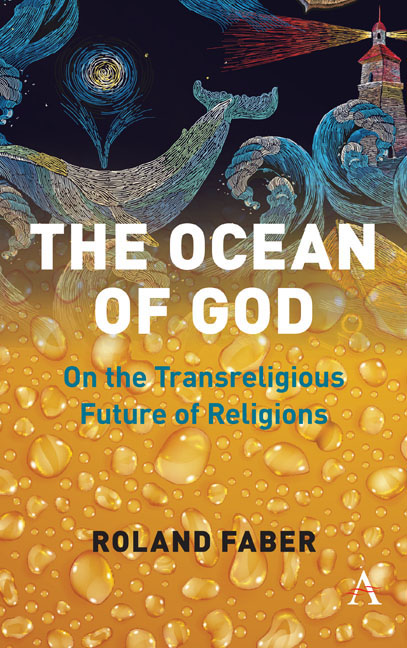Book contents
- Frontmatter
- Dedication
- Contents
- Introduction
- Part I Paradigms of Unity and Plurality
- Part II Negotiations of Multiplicity
- Part III Transreligious Horizons
- Chapter Eleven The Transreligious Discourse
- Chapter Twelve Other Religions: From Coinherence to Coinhabitation
- Chapter Thirteen The Earth and Other Worlds: A Story of Cosmic Magnitude
- Chapter Fourteen The Future of Religions
- Chapter Fifteen One with All Religions
- Glossary
- References
- Index
Chapter Twelve - Other Religions: From Coinherence to Coinhabitation
from Part III - Transreligious Horizons
Published online by Cambridge University Press: 09 July 2019
- Frontmatter
- Dedication
- Contents
- Introduction
- Part I Paradigms of Unity and Plurality
- Part II Negotiations of Multiplicity
- Part III Transreligious Horizons
- Chapter Eleven The Transreligious Discourse
- Chapter Twelve Other Religions: From Coinherence to Coinhabitation
- Chapter Thirteen The Earth and Other Worlds: A Story of Cosmic Magnitude
- Chapter Fourteen The Future of Religions
- Chapter Fifteen One with All Religions
- Glossary
- References
- Index
Summary
The Sun of Truth, the Word of God, shines upon all mankind; the divine cloud pours down its precious rain; […] and all humanity is submerged in the ocean of [God's] eternal justice and loving-kindness.
— ‘Abdu'l-BaháOne of the perhaps unexpected implications of the transreligious discourse is that the new axial religious pluralism— on the basis of its mystery of distinction and unity and the imperative for pluralisms of pluralisms— cannot be restrained by exceptionalism. The transreligious reach must, therefore, be expanded in at least three directions: deeper into axial (and preaxial) resonances; inward into ecological awareness; and outward into interstellar consciousness. I will address the transreligious resonances with axial (and preaxial) religions, as well as the Bahá’í contribution to their transreligious understanding here, and the ecological and cosmic implications in the next chapter.
The impacts of the new axial age for the development of a transreligious consciousness must never veil the seriousness and creativity of the religions of the first axial age in their contributions to the constitution and development of transreligious consciousness. In fact, we should not even forget the preaxial religious landscape. Primal religions, while they might not have had the same universal horizon and soteriological urge displayed after the axial turn of events, still present us with the habitation of a world that spans wide and dives deep into the human longing for meaning, and today may even help us to recover ecological circularity and interstellar universality. Not only do they present us with questions and operations that still find (in transreligious transferences) their home in many later religious life-forms, such as matters of health, relation to ancestors and the dead, imperatives of good life and good death, the curiosity to develop a relational explanatory cosmology and so on, they also inherently unify the world (including humanity) within a transcendent horizon that appears in some profound sense to have been a paradigm of universal unity. That is, without their unifying worldview later monotheisms and monisms of the axial age would not have had arisen; they provided for a sustainable heritage from which axial religions could appear. What is more, primal religions are inherently multireligious, localized and fluent and allow for transreligious processes to happen, probably much more freely than the later axial religions with their competing universal truth claims and divergent salvation standards.
- Type
- Chapter
- Information
- The Ocean of GodOn the Transreligious Future of Religions, pp. 137 - 152Publisher: Anthem PressPrint publication year: 2019



